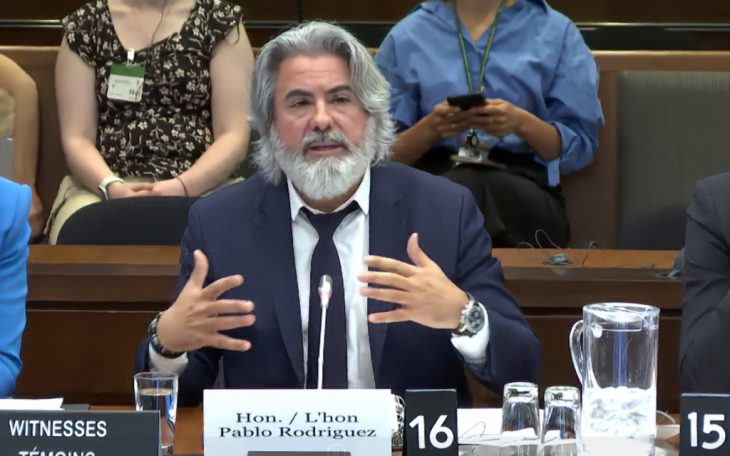
By Christopher Guly
OTTAWA – In proposed policy directions released Thursday to the CRTC on implementing bill C-11, the Online Streaming Act, the federal government reaffirmed that there would be no regulation of social media content or its users.
The CRTC will be directed to exclude from regulation social media creators, including podcasters, as well the video games media form. Broadcasters that post on social media as well as other platforms, like TV and radio, however will not necessarily be exempt.
To promote a wide range of Canadian programming, the CRTC will also be directed to consider various means of discoverability and showcasing, such as off-service and on-service interventions, and “prioritize outcome-based regulations and conditions that minimize the need for broadcasting undertakings to make changes to their computer algorithms that impact the presentation of programs.”
Discoverability metrics could include audience-size or “the ability of users to find Canadian programs.”
The CRTC will also be directed to examine how it defines Canadian programs in both the audio and audio-visual sectors by consulting Canadians, the creative and production sectors and “other interested parties.”
“Given significant public interest and the foundational nature of this definition to the regulatory regime, the commission would be directed to prioritize its examination of these definitions,” Heritage says.
The CRTC will also be directed to “ensure that the definition of ‘Canadian programs’ is multi-faceted, and that it interacts with evolving Canadian content policies,” as well as recognizing the “crucial roles played by Canadian independent producers and production companies, and the crucial relevance of Canadian creative personnel that have a high degree of creative control or visibility – such as actors, writers, directors and showrunners – being used by both Canadian and foreign broadcasting undertakings.”
Supporting Canadian ownership of intellectual property will be key as set out in the proposed policy directions.
In its determination of Canadian programming, the CRTC will also be directed to “recognize the distinctions between broadcasting undertakings that distribute audio programs and those that distribute audio-visual programming,” and to “consider, as it relates to audio-visual programming, the vital role of Canadian independent producers and of the Canadian creative resources that are being used by both Canadian and foreign broadcasting undertakings.”
As well, the commission will be asked to “consider whether its determination of what constitutes a Canadian program complements other Canadian content policies that are applicable to the Canadian broadcasting system, including those pertaining to audio-visual tax credits or government funding.”
Last month, the CRTC launched three public consultations on how to implement changes to the Broadcasting Act required under C-11, which passed into law on April 27. The regulator had already preempted the policy directions by stating it would not regulate social media content or its users and would embark on figuring out how to define CanCon in this new era, which online undertakings should register with it, and get input on a new flexible contribution model for those that are regulated.
Under the broad brushstrokes of the government’s proposed policy directions for C-11, the CRTC will be asked to:
- support Canadian creators and creative industries;
- advance Indigenous storytelling;
- increase representation of Black, racialized and other equity-deserving communities;
- ensure regulations are fair and flexible;
- redefine Canadian programs to reflect today’s industry and how Canadian stories are told; and
- exclude social media creators’ content from regulation,” according to a news release from Canadian Heritage.
Once published in the Canada Gazette on Saturday, a 45-day period of public consultation will commence.
Once that period concludes, the federal government will review and analyze the submissions, and advise Canadian Heritage Minister Pablo Rodriguez whether any changes need to be made, a senior departmental official told Cartt.ca on Thursday during a technical briefing.
A final version of the proposed regulations will be published in the Canada Gazette in the fall and the CRTC would be legally bound to follow the policy directions set out in it.


